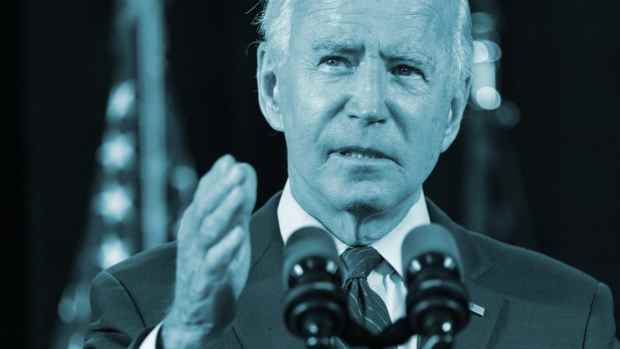Rhino Records Helped Create a Reissue Boom—Now One of Its Founders Is Starting Over
A velvet Elvis painting hangs on the wall in the office of Shout! Factory cofounder Richard Foos. Staffers in Hawaiian shirts murmur into headsets, and Mimi, an elderly pit mix, wanders through the suite in search of a back scratch. The lighting is subtle and soothing, the walls are a dark, homey brick, and the “lobby” is a small space with a low, comfy couch beneath a small mounted promo poster of a quintessential L.A. band, the Blasters.
Launched in January 2002, Shout! specializes in putting out offbeat CD and DVD collections. Recent DVD releases include lost episodes of Groucho Marx in You Bet Your Life, and its Heroes of the Blues CD series features such classic artists as Ma Rainey and Mississippi Fred McDowell, with artwork by R. Crumb and Bill Stout. They’re packages that have “adoring fan” written all over them.
They bear a striking resemblance to the exuberant CD and DVD packages of another company—Rhino Entertainment. No wonder: Foos cofounded Rhino, too. In fact, three of the principal architects of that pioneering label work in the Shout! offices in West L.A., a few miles from where Rhino rose to prominence as one of the most innovative companies in the record business. Reissues are common now, but Rhino, launched in 1978, was the first to make an art form of them, featuring authoritative song selections, gorgeously produced booklets full of rare photos and encyclopedic liner notes, and clever packaging.
Rhino was absorbed by media conglomerate Time Warner in 1998—the culmination of a deal initiated in 1992—and last year the label moved from its home turf in West L.A. to Burbank, where it shares a building with three other labels in the Warner Music Group. Nobody forced Rhino to make the deal; the label was doing fine on its own. Nor can anyone prove that Time Warner has demonstrably lowered Rhino’s standards; several recent releases, such as the Talking Heads anthology Once in a Lifetime and the ZZ Top retrospective Chrome Smoke & BBQ, have earned great praise. So why then, is the team that made Rhino such a resounding success competing against its old label? Perhaps the simplest answer is success itself.
Rhino wasn’t even supposed to be a record company; the label was founded almost as an afterthought. Foos had spent time growing up in Philadelphia, where he fell for ’60s soul and became a self-confessed music geek. He moved to L.A. and began selling used blues records—first from the trunk of his car, then from bins in the back of an electronics store. Foos opened Rhino Records in 1973 in Westwood, and the shop quickly made fans with its sharp selection. Its out-of-print and used bins offered customers the chance to sample the New York Dolls and the Yardbirds for a couple dollars, and Foos had imports like the Clash and the Sex Pistols months before other L.A. stores. Rhino became a cultural scene, where customers would debate the finer points of Blue Oyster Cult with the staff and could find a flourishing underground magazine section.
The idea to cut a record came from Harold Bronson, the store’s manager. The featured artist was a street singer named Larry “Wild Man” Fischer, who used to hang out on the Sunset Strip and compose songs for a dime. “We had wanted to press up a 45 to give away as a promotional item to our customers,” Foos says. Rhino employees were die-hard Wild Man Fischer fans; “he felt like a rock star when he came into the store,” says Bronson. In appreciation, Fischer wrote the ode "Go to Rhino Records," which he sang into a cassette recorder in the back room of the store. The screechy a cappella wound up getting a spin on the BBC’s popular John Peel Show and made number 48 on Peel’s list of top 50 favorites that year. Then Virgin Records ordered 500 copies. “It was our first foray into the business,” says Foos. “A few years after that, we decided we wanted to start a label.”
In 1978, the new label began putting out records featuring novelty acts like the Temple City Kazoo Orchestra and Gefilte Joe and the Fish, but it also produced more serious rereleases from pop artists normally shunned by rock fans—acts including the Monkees, Dionne Warwick, and Sonny and Cher. “We loved them without irony,” says former artists and repertory vice president Gary Stewart, who was famous for the meticulous detail he would lavish on Rhino releases. Plenty of head butting went into each record, Stewart says, but “the fact that you had to fight for things infused it with more zeal.” While the major record labels were consumed with finding the next new hit, Rhino brokered agreements with them to mine their dusty vaults for overlooked gems. Staffers would obsessively seek out original recordings to remaster rather than accept a diluted version on the cheap the way a K-Tel would. “We were a beggar at everybody’s door,” recalls David McLees, who joined Rhino in 1987 and is now senior vice president of A & R of Rhino at the Warner Music Group.
The company managed to stay in the black, but nobody was getting rich. Then in 1989, Rhino moved beyond just licensing tracks from other labels; the company set out to establish a catalog of its own. Music businessman Morris Levy under federal indictment on extortion charges, was divesting his assets, including the diverse Roulette catalog, which featured the likes of Tommy James and the Shondells. None of the majors would touch it—probably for fear of potential legal hassles—so Rhino bought it. “That acquisition turned the tide on the business side,” says Shout! COO Bob Emmer, who was the Rhino executive vice president at the time. It positioned the label to ride the CD tidal wave as boomers set out to buy digital versions of the music from their teen years. Even though larger companies had begun looking to reissues, Rhino had an edge: Fans had learned that passion came with any package featuring its logo. The later releases were remarkable for their range, from the Gram Parsons anthology Sacred Hearts and Fallen Angels to Brown Eyed Soul, a three-volume set of East L.A. oldies, to the works of Elvis Costello.
But the quality of its box sets wasn’t all that set Rhino apart. As the label’s profit margin grew, so did the scope of its social and philanthropic pursuits. Employees were given a week off between Christmas and New Year’s in exchange for doing 16 hours of community service annually and received additional time off for every extra hour volunteered. There were public-policy discussions and speakers from community groups at lunchtime. Rhino began giving grants not to conventional charities but to local grassroots groups like the fledgling Community Coalition for Substance Abuse Prevention and Treatment, to whom $1,000 or $5,000 was a windfall. In 1991, the company set a benchmark: It would donate 2 percent of its annual pretax profits to such groups. Advising Rhino was the Liberty Hill Foundation, a philanthropic institution inspired by the 1960s social justice movements. “I admired the idea of having a double bottom line—making money and making a difference,” says Shawn Amos, who produced the Rhino classic Say It Loud: A Celebration of Black Music in America.
It’s difficult to point to any dramatic changes that took place at Rhino following the label's deal with Time Warner in 1992. The media conglomerate acquired half of Rhino, with what amounted to an option for the other half. In exchange, Rhino agreed to manage Time Warner's extensive Atlantic catalog. To the few fans who’d noticed the transaction, it may have seemed strange that Rhino, a company defined by giddy iconoclasm and love of pop music, would participate in something as venal as a corporate buyout. But no one at Rhino considered the deal a step toward corporate assimilation; to hear Foos tell it, the joint venture seemed the most logical way to move the company forward. “Atlantic Records had this unbelievable catalog,” he says. “I had grown up idolizing so many of their artists.” In fact, Rhino went on to produce fabulous box sets of Atlantic artists Otis Redding, Aretha Franklin, and Ray Charles. “They always gave us complete autonomy,” says Garson Foos, Richard’s younger brother, who was the senior vice president of marketing and is now the president of Shout! Factory.
Their naïveté became more apparent in 1998, when Time Warner acquired the other half of Rhino. The deal was lucrative—estimates at the time had the company going for $60 million (and Foos regained ownership of his Westwood record shop, which had gone to Time Warner in ’92)—but Rhino management soon found itself part of a vast corporate structure, with all that entails: more meetings, more red tape, more people to answer to. Before, there had been little scrutiny of how Rhino ran day-to-day operations, who was hired, what positions were created. After the flail acquisition, some job functions were consolidated between the two companies—notably in the Rhino sales department, where reps also had to begin selling Warner products.
“A new regime came in to run Warner Music Group,” says Garson Foos. “The level of autonomy was changing, as could have been speculated would happen.” The changes were subtle at first. “It was a gradual thing,” says one insider. But the company was clearly developing “a different product mission,” as Amos puts it. Rhino was no longer a niche label; it was a Time Warner catalog-reissue label. Rhino executives entered into standard five-year employment agreements.
In 2000, Time Warner began going through its own series of convulsions as it merged with AOL. There was demand for higher profits, and costs needed to be cut. Positions were frozen or eliminated, including Emmer's. The following year, the company created Warner Strategic Marketing to promote the artists of Electra, Atlantic, and Warner Bros., with Rhino as part of the new entity. Scott Pascucci, a former Sony business affairs executive, was named president. He seems to be doing the best he can to maintain Rhino’s aura. “Culture and product are inseparable,” he says. "Product is not created in a vacuum. It’s created by people. If you let the culture change, or if you change the culture, you're going to end up changing what it is you're able to create and produce.”
No one can say what will happen to Rhino, however, now that Time Warner has agreed to sell its music division to Seagram’s heir Edgar Bronfman Jr. For the time being, Rhino will continue donating to organizations geared to social change and rewarding employees for community service. And many of the people from the old Rhino are still on board, including McLees and James Austin, who are in A&R, and Gary Stewart, who serves as a consultant.
Garson Foos and Harold Bronson left when their contracts ended. (Bronson is now president of Rhino Films, the production company he co-owns with Richard Foos that is best known for Fear and Loathing in Las Vegas.) Richard Foos opted to leave in mid 2002, not long before the moving trucks pulled up to Rhino’s West L.A. headquarters, ready to ship them to Burbank. “In the end,” says Foos, “it was my desire to see if I could do it again— my entrepreneurial desire outweighed my desire to stay.”
Using a reported $5 million from the Rhino sale, he teamed up again with his brother and Bob Emmer to start Shout! Factory. Last year it put out two DVD sets from animated cult favorites Spike and Mike, a move reminiscent of Rhino’s DVD release of South Park, another marginal series turned surprise hit. Shout! went a little higher brow with Shadows and Light, which features live Joni Mitchell performances, directed by Mitchell herself. A Fats Domino release includes a DVD and a companion CD, The Legends of New Orleans: The Music of Fats Domino.
The company will also unveil its philanthropic agenda later this year. “Like Rhino, we're going to marry social responsibility with business,” says Foos. For instance, Shout! will give time off to staff who volunteer with community groups.
Shout! Factory is small (just 15 employees) and has to compete in a crowded multimedia market where CD sales are getting pummeled. Emmer acknowledges the daunting business conditions, but he says there are advantages to being a niche company "We move quicker," he says. “We don't have to hit home runs—we’re a singles player, out there just hitting singles.”
Sitting in an office full of the clutter that comes from working on several projects at once, Emmer recalls a contract he kept posted on the wall at Rhino, the one that sealed the deal between Rhino and the Turtles. It was riddled with Wite-Out and cross-outs. “That's a perfect contract,” he says. “It’s a partnership. It’s ‘Let’s try to put down on a napkin or a little piece of paper here what the deal is, and we’ll figure it out.’ You cannot do that in a large corporation. You can’t.”








